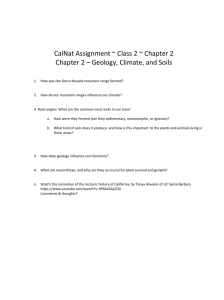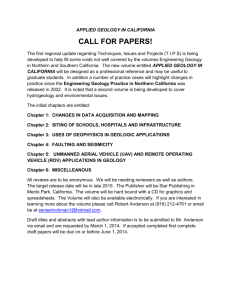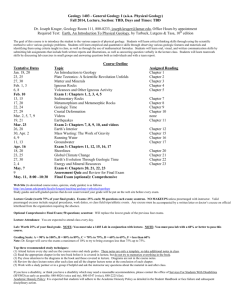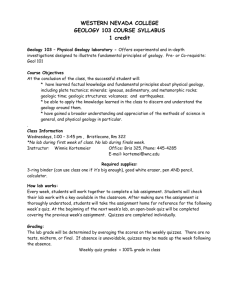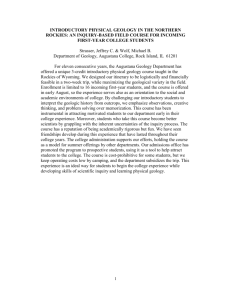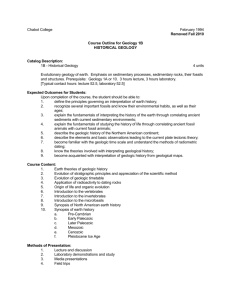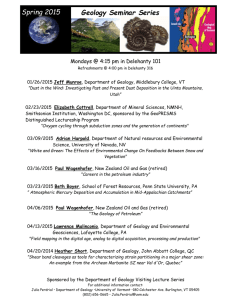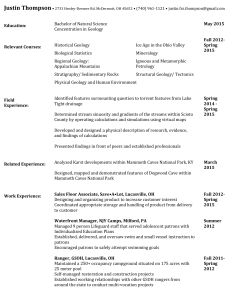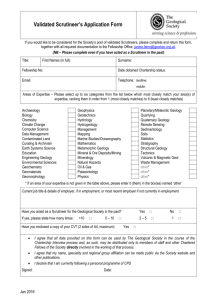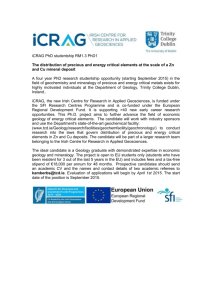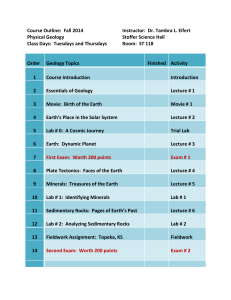userfiles/269/my files/geology syllabus 2015?id=206
advertisement
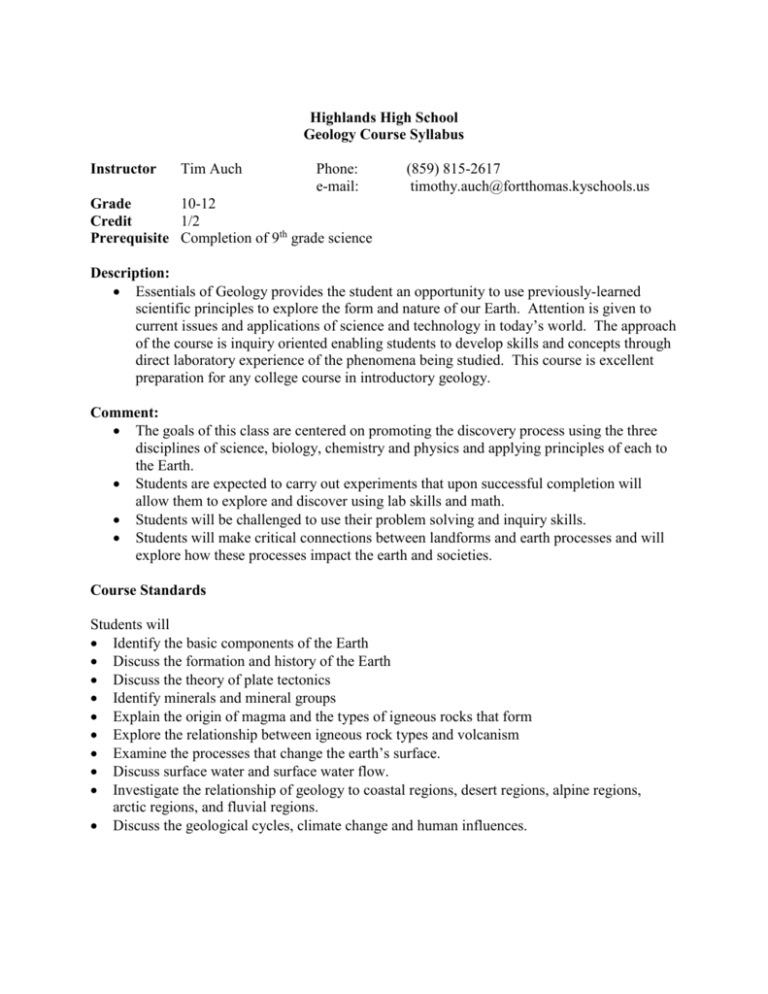
Highlands High School Geology Course Syllabus Instructor Tim Auch Phone: e-mail: (859) 815-2617 timothy.auch@fortthomas.kyschools.us Grade 10-12 Credit 1/2 Prerequisite Completion of 9th grade science Description: Essentials of Geology provides the student an opportunity to use previously-learned scientific principles to explore the form and nature of our Earth. Attention is given to current issues and applications of science and technology in today’s world. The approach of the course is inquiry oriented enabling students to develop skills and concepts through direct laboratory experience of the phenomena being studied. This course is excellent preparation for any college course in introductory geology. Comment: The goals of this class are centered on promoting the discovery process using the three disciplines of science, biology, chemistry and physics and applying principles of each to the Earth. Students are expected to carry out experiments that upon successful completion will allow them to explore and discover using lab skills and math. Students will be challenged to use their problem solving and inquiry skills. Students will make critical connections between landforms and earth processes and will explore how these processes impact the earth and societies. Course Standards Students will Identify the basic components of the Earth Discuss the formation and history of the Earth Discuss the theory of plate tectonics Identify minerals and mineral groups Explain the origin of magma and the types of igneous rocks that form Explore the relationship between igneous rock types and volcanism Examine the processes that change the earth’s surface. Discuss surface water and surface water flow. Investigate the relationship of geology to coastal regions, desert regions, alpine regions, arctic regions, and fluvial regions. Discuss the geological cycles, climate change and human influences. Geology Course Syllabus Page 2 Textbook: Essentials of Geology, 4th edition; James S. Monroe and Reed Wicander, Brooks/Cole, 2005. Required Material: Spiral notebook, composition book, 3-ring binder with pockets, pens, pencils, scientific calculator, protractor, metric ruler, safety glasses (optional; one class set is available), graph paper, payment of class fees in guidance office. Grading Students will be evaluated on activities and class assignments including but not limited to the following: tests and quizzes laboratory activities homework portfolio pieces research papers individual and group projects classroom activities and participation Participation and Attendance: Students will be expected to be on time and prepared for class with all necessary materials. Students are responsible for making arrangements to make up tests, homework and laboratory activities. For more information, see student handbook. Course Content/Calendar 1. Age of Earth and Basics 2. Minerals 3. Igneous Rocks and Magma 2. Volcanoes and Earthquakes 3. Geologic Processes and Weathering 4. Geologic Settings and Change 2 weeks 2 weeks 2 weeks 2 weeks 4 weeks 6 weeks reasons for geology 1. 2. 3. 4. 5. 6. 7. 8. 9. 10. 11. Connectedness (land, ocean, atmosphere, plants, animals) Resource Use Energy Planning for Future Complexities Stewardship Critical Thinking Understanding how the Earth works Predictions Technological use (satellites) Monitoring Survey of environmental issues
